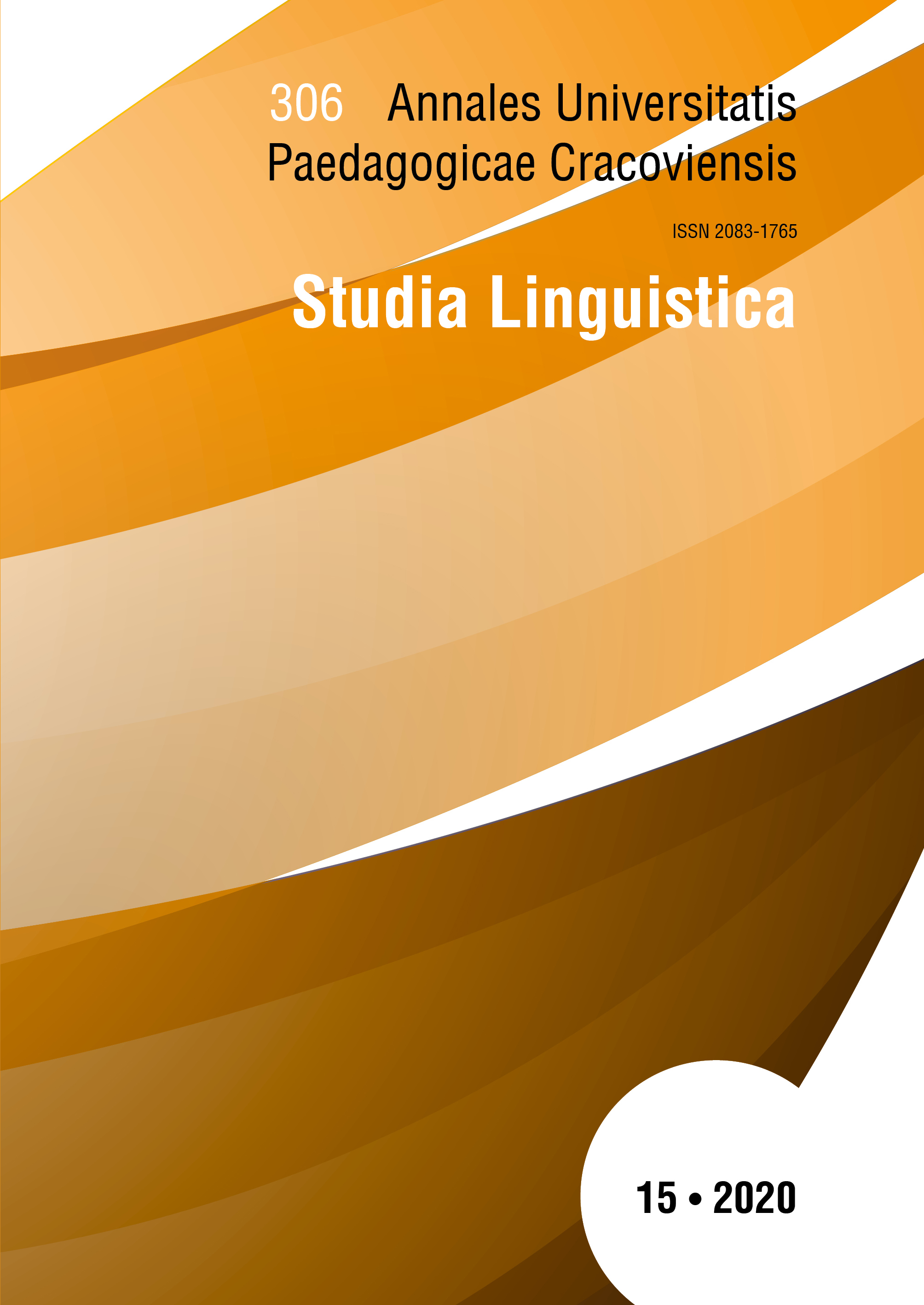From prorokini to marszałkini, derivation as needed
Main Article Content
Abstract
The subject of the article is the asymmetry of gender in the Polish language, especially as far as the names of the prestigious professions and functions are concerned (i.e. feminatives). It also considers the function of the feminatives in both language and culture, as well as their modern use especially in ideological disputes. Short history of feminatives in Polish shows, that their presence is a natural way of filling in the lexical gaps related to development of society and changes of civilisation.
Downloads
Article Details
Author, submitting a text to the editorial board of the journal “Annales Universitatis Paedagogicae Cracoviensis. Studia Linguistica", certifies that the content of the article has not been published so far and that the work does not violate in any way the copyright or related rights of other person, as well as other rights of third parties, and that no one's rights to the work (or any part thereof) have been missed. After signing the contract, the property rights to the published materials are transferred to the Scientific Publisher of the University of the National Education Commission, Krakow.
“Annales Universitatis Paedagogicae Cracoviensis. Studia Linguistica” is an open access journal, and all its content is made available free of charge to users and institutions under the Creative Commons CC-BY-NC-ND 4.0 license (attribution, non-commercial use, no derivative works). Under this license, the authors agree that their work may be lawfully reused for any purpose, except for commercial purposes, without the prior consent of the author or publisher. Everyone can read, download, copy, print, distribute and process these works, provided that the author's marking and the original publication place are correct. Published texts may not be used to create derivative works (e.g. to translate and publish in another language without the consent of the publisher). This is in line with the BOAI (Budapest Open Access Initiative) definition. "Studia Linguistica" does not charge for submitting or processing articles.
References
Chróścielewski T., 1981, O kilku osobliwościach języka niby polskiego, „Głos Robotniczy”, nr 160, 13 VIII.
Google Scholar
Hannam J., 2010, Feminizm, przeł. A. Kaflińska, Poznań.
Google Scholar
Helios J., Jedlecka W., 2018, Urzeczywistnianie idei feminizmu w ogólnoświatowym dyskursie o kobietach, Wrocław.
Google Scholar
Kłosińska K., Rusinek M., 2019, Dobra zmiana, czyli jak się rządzi światem za pomocą słów, Kraków.
Google Scholar
Kreja B., 2002, Polskie formacje feminatywne. System i uzus, [w:] tenże, Studia i szkice słowotwórcze, Gdańsk, s. 26–31.
Google Scholar
Łaziński M., 2006, O panach i paniach. Polskie rzeczowniki tytularne i ich asymetria rodzajowo-płciowa, Warszawa.
Google Scholar
Nieckula F., 1978, Gruby nie chce być Gruba, „Wiadomości”, 6 IV.
Google Scholar
Reczek S., 1983, Wołanie na puszczy, „Przegląd Tygodniowy”, nr 47, 20 XI.
Google Scholar
Szpyra-Kozłowska J., Karwatowska M., 2005, Lingwistyka płci. Ona i on w języku polskim, Lublin.
Google Scholar
Słownik nazw żeńskich polszczyzny, 2015, red. A. Małocha-Krupa, Wrocław.
Google Scholar
Tokarczuk O., 1999, Dom dzienny, dom nocny, Wałbrzych.
Google Scholar
Walicki A., 1876, Błędy nasze w mowie i piśmie, ku szkodzie języka polskiego popełniane, oraz prowincjonalizmy, Kraków–Warszawa.
Google Scholar
Woźniak E., 2014, Język a emancypacja, feminizm, gender, „Rozprawy Komisji Językowej ŁTN”, t. LX, s. 295–312.
Google Scholar
Zieniukowa J., 2013, Pani Marszałkini – czyli o językowym dziwolągu, [w:] Mówię, więc jestem. Rozmowy o współczesnej polszczyźnie, red. M. Milewska-Stawiany, E. Rogowska-Cybulska, Gdańsk, s. 140–142.
Google Scholar
